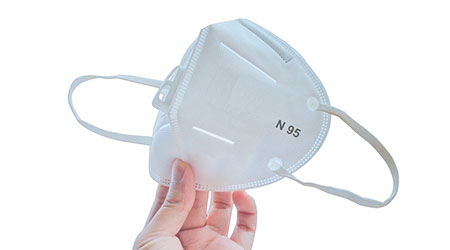A new study shows that ozone gas could provide a safe means for disinfecting certain types of personal protective equipment, according to an article on the Georgia Tech website.
Georgia Institute of Technology researchers used two pathogens similar to the novel coronavirus and found that ozone can inactivate viruses on items such as Tyvek gowns, polycarbonate face shields, goggles, and respirator masks without damaging them.
However, the items can’t include stapled-on elastic straps. Also,the study found that the consistency and effectiveness of the ozone treatment depended on maintaining relative humidity of at least 50 percent in chambers used for disinfection.
According to M.G. Finn, chair of Georgia Tech’s School of Chemistry and Biochemistry and leader of the study, ozone is one of the friendliest and cleanest ways of deactivating viruses and killing most any pathogen. Plus, it does not leave a residue; it’s easy to generate from atmospheric air and it’s easy to use from an equipment perspective.

 The High Cost of Healthcare Violence
The High Cost of Healthcare Violence EVS Teams Can Improve Patient Experience in Emergency Departments
EVS Teams Can Improve Patient Experience in Emergency Departments East Tennessee Children's Hospital to Become Dolly Parton Children's Hospital
East Tennessee Children's Hospital to Become Dolly Parton Children's Hospital The Future of the Global Hospital Hygiene Market
The Future of the Global Hospital Hygiene Market Rethinking Fire Safety Inspections
Rethinking Fire Safety Inspections